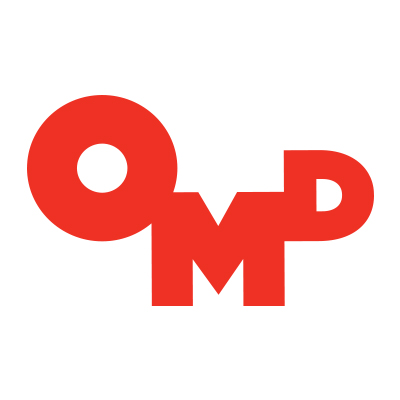Originally published on New Digital Age
Chelsea Horncastle is Director, Product Innovation and Insights, at OMD, is an digital marketeing professional championing a people-first approach to measuring perceptions, values and behaviours. Over the past five years, she has been leading OMD’s award-winning international research initiatives that understand how consumers accept, use, and trust emerging technologies in their daily lives.
Here, Chelsea discusses the importance of positive female representation in research, insights, and consumer testing and highlights the value of amplifying diverse female voices for improved decision making.
Why is positive female representation in research, insights, and consumer testing an important issue to you and why are you shining a spotlight on the issue now?
Diverse representation is crucial, especially in areas like technology where the product development tends to be male dominated. It is important, if not necessary, to have diverse representation to truly understand and identify engagement and growth opportunities, as well as to avoid groupthink. If representation is unbalanced, you only get a fragmented view of the picture – and one that can further alienate.
For example, when virtual reality headsets were first designed, one big problem was VR sickness. This was because the product was mainly designed by men who are taller so when women tried the experience it wasn’t designed with them in mind. This isn’t a one-off, entire books have been written on this topic, The Invisible Women by Caroline Criado Perez which investigates data bias in a world designed for men from the temperature in our offices to the increase in serious injuries women accrue in car accidents.
As a woman, what key challenges/barriers have you faced in your career?
The biggest challenge so far has been becoming a mum. I know it’s not a choice everyone will make but becoming a primary caregiver to a child means you have an experience most men don’t. Even in a supportive workplace, there are so many decisions that need to be made that impact your career from how long to take on Maternity Leave, childcare arrangements, whether you comeback full or part-time, and the list goes on.
Then on top of those personal decisions, there is another element that goes beyond a good maternity package, there is also a lot of trust you put on your workplace and team in terms of pay and promotion advocacy during your maternity leave, maternity cover, the role you come back to, and so on. These issues are not media specific – mothers face a wage penalty of almost 40% of earnings in the UK.
I have been very lucky that I have a great support system from my team – they have made my life easier with flexible working hours and have been very supportive. Even with the support, I’m still very much adjusting and experiencing mummy-guilt every so often.
Why is a diverse workforce important to the future of your industry?
Positive female representation helps us attract, retain and develop women. This is a prerequisite to a diverse and representative workforce, without which we wouldn’t be able to effectively serve our clients. It is also a sad truth that affecting the changes needed to make workplaces a place where women can fulfil their true potential, a critical mass of women need to demand it.
We need to ensure we are taking the time to involve and listen to different perspectives – gender, age, ability, cultural backgrounds, etc. We also need to do more to ensure diversity is achieved across all departments and seniority. For women alone, PwC estimates that it would take at least 33 years for women’s participation rate in the labour force to catch up to men’s current participation rate.
What can be done to attract the next generation of female talent to your industry?
Through programmes like executive schemes, we are attracting a fantastic group of women into the industry out of university and at junior levels. And while I always want to see more brilliant women enter the industry, what I would really like to see is that more of the women we do attract being able to fulfil their potential.
Too many women leave the industry, either because their efforts are not getting the recognition they deserve or because we too often try to impose 20th century work patterns on 21st century lifestyles. To fix this, we need to make sure women aren’t penalised for not being the squeaky wheel around annual reviews, or for not putting in long hours because of family needs.
Generally speaking, should women be doing more to support each other professionally?
Many women have benefited tremendously from building close relationships and supporting other women. However, it is neither fair nor helpful to put the main onus on supporting women on other women. Change needs to be more systemic and organisations need to affect cultural changes such that both men and women benefit from supporting women and other underrepresented groups.
OmniWomen is one such initiative where different issues and topics are explored, mentoring is offered and networking is facilitated with the goal that it serves as a catalyst for increasing the influence and number of women leaders throughout the Omnicom Network.
How can men be better allies to their female colleagues?
Take the time to learn more about the challenges that women face in the workforce, and initiatives that have been successful. Speak up and raise awareness about these issues and solutions. Focus on performance, rather than fitting conventions.
